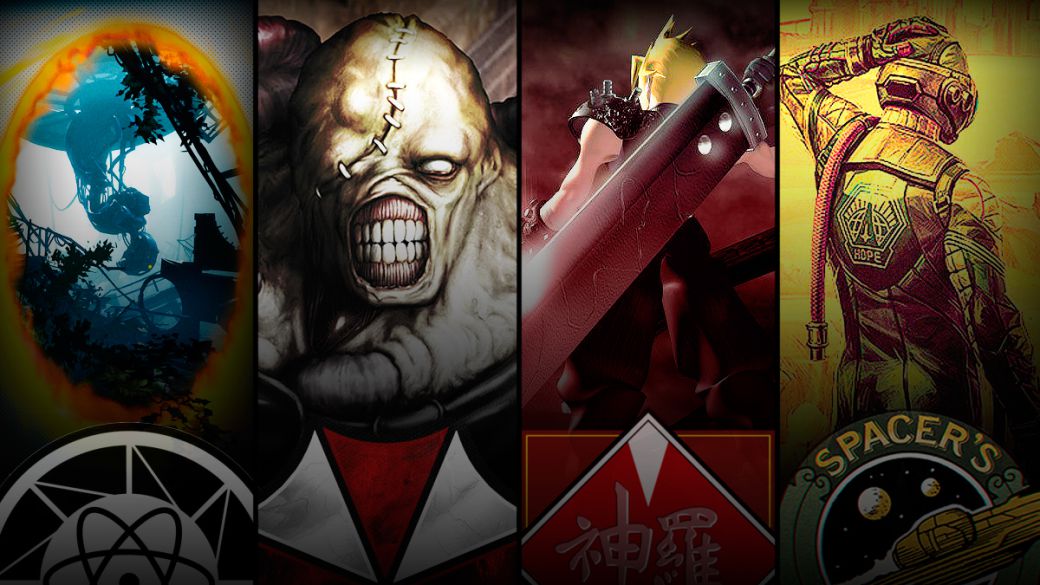
The fight against evil corporations is a common topic in video games that exposes a socio-political complaint.
Every epic story consists of three essential elements: a hero, a villain and the battle between the two. Good against evil is the most ancient struggle, and one that we enjoy in each of its versions and reinventions. How many times have we saved the world by putting ourselves in the shoes of the hero? And what about when we’re invited to play the paladin of the dark side? Still, taking part in a story in which we face a colossal enemy makes us feel powerful. Our nemesis can take many forms. Sometimes it is an individual, and other times it is a brand. Today at FreeGameTips we talk about corporations that have become the true monster of their stories, a troop on which the cyberpunk genre is built. Through an allegory against the oligarchy, we live dystopias that present a company as a titan that imprisons a world in danger in its clutches. Indeed, it is usually one of the most common narrative topics in a medium that has never been alien to politics.
Umbrella, the pharmaceutical ambition
In times of pandemic, it is inevitable to fantasize about Resident Evil and his portrait of a current society in the key of science fiction. However, the parallelism with reality is only separated by the supernatural element. The terror of the Capcom saga resides not only in the zombies and monsters like Mister X, but in the chaos caused by Umbrella. This pharmaceutical giant is responsible for the creation of the T virus and G virus, with which they have subdued Raccoon City. In the saga we also discover their bribes towards the authorities to be able to operate without tranquility. To top it all, the company takes control of the orphanage in order to use the children as experimental subjects.
Leon, Claire, Chris, Jill and the saga’s heroes are not only facing off against the undead and the insane creations of the umbrella logo company. They face the domination of a corporation dominated by their own ambition and that has signed its sentence in the same city that it used as a guinea pig. The essay The Father of Survival Horror: Shinji Mikami, Procedural Rhetoric, and the Collective / Cultural Memory of the Atomic Bombs (Ryan Scheiding) explores how Shinji Mikami’s work incorporates three common pillars: the portrait of physical and / or psychological trauma , the large-scale destruction of a city and distrust of power. In the case of Resident Evil, the author states: “Abuse by those in positions of power are part of Mikami’s narratives. Again, this can be found in the Resident Evil saga where, apparently, anyone with power is going to use it irresponsibly. In Resident Evil (Capcom, 1996), the powerful Umbrella corporation creates bio-organic weapons in pursuit of its own gain at the cost of hundreds — and thousands in the aftermath — of civilian lives. In the same essay, Scheiding assesses how the collective memory for the Hiroshima and Nagasaki bombings is present in the work of Mikami, whose criticism of the authorities as responsible for a massacre is not accidental.
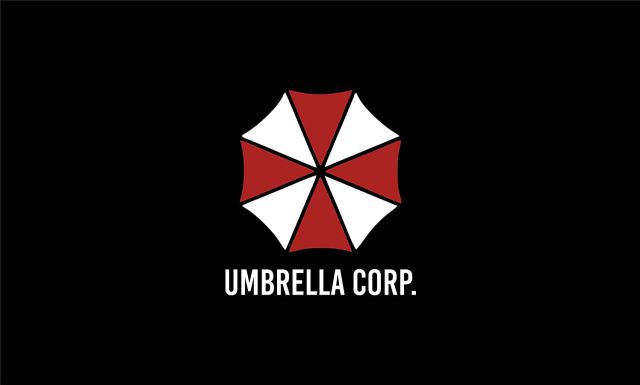
Umbrella Corporation Logo
Shinra and the exploitation of nature
The questioning of the organisms of power is not a strange topic in the Final Fantasy saga. In Final Fantasy X we saw how religion is used as a control mechanism in the masses. In the case of Final Fantasy VII, whose Remake is one of the candidates for Game of the Year this 2020, the leitmotif is respect for nature. Our main group belongs to the ecoterrorist organization AVALANCH, and in the first scenes of the game we accompany them during one of their coups against the Shinra company.
Without knowing anything about the game, we may think that we control the villainous side, but we soon discover that the attack is the desperate response to a suffocating situation created by the same corporation. In Geek & Sundry they summarize the role of the company within the game universe: “Shinra is dedicated to extracting mako energy – like a kind of green oil – from the Earth and refining it. With its reactors, Shinra produces electricity and thus presents in Final Fantasy the equivalent of the Industrial Revolution. Unfortunately for the planet, Shinra was originally an arms company and has never stopped being one. Led by the visionary President Shinra, who wanted to build a global conglomerate and find the Promised Land, Shinra worked tirelessly to establish world domination. The tools of his business consisted of warfare, secret police, media control and super soldier training programs.
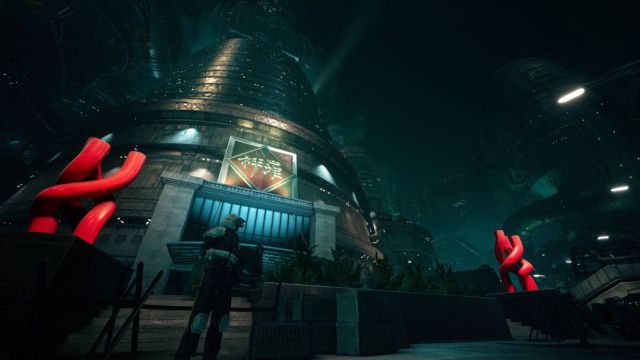
Shinra headquarters
Aperture Science, all for science
In the case of Portal, our protagonist Chell does not face an evil corporation as such, since there are no longer any living employees in the company … if we limit ourselves to human personnel. The young woman awakens in the corpse of Aperture Science, a laboratory in which not a single scientist remains. Only GLaDOS, the artificial intelligence that sustains the facilities, is the only companion, guide … and final enemy.
NOTE: Spoilers for Portal and Portal 2 are listed below.
Aperture Science was not founded with the intention of causing harm to the planet, but it was the insanity of its founder Cave Johnson who diverted his experiments and research from ethics. This army shower curtain factory expanded his studies beyond improving military hygiene, and over time Johnson’s greed and empirical obsession diverted him from concern for the well-being of employees. During their experiments, they used athletes who volunteered. Later, with the lack of budget, homeless people were used as subjects and, later on, the same employees became forced guinea pigs.
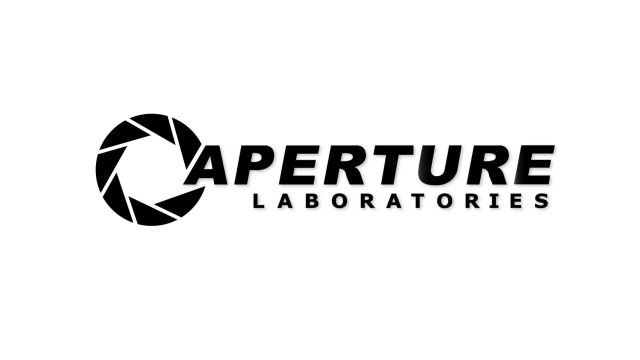
Aperture Science Logo
Cave Johnson, during his investigations, signed his own sentence: he fell ill with cancer after breathing in moondust. The only hope of cheating death was another technological dream: turning one’s mind into a computer and thus continuing to run Aperture Science. However, this project was still in an embryonic stage when the director reached the last hours. It was his assistant Caroline who succeeded Johnson to become the artificial core GLaDOS. Whether the woman voluntarily lent her brain or not remains unknown.
In the Lab-Rat comic, Doug Rattman, a former Aperture Science scientist, recounts how GLaDOS overcame its own limitations. With a morality module installed to neutralize his homicidal drives, the computer tricked one of the scientists into giving him access to a neurotoxin with which he ends up massacring the entire center.
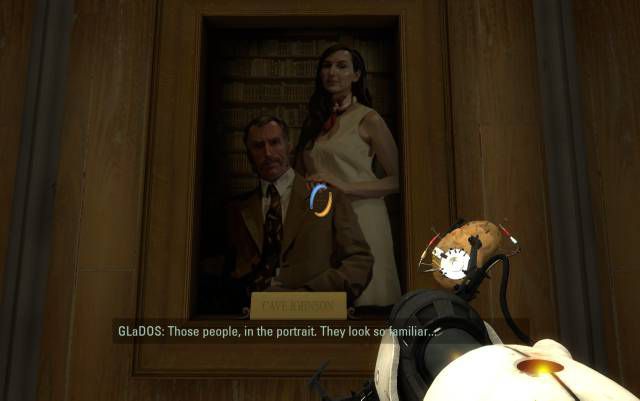
Cave Johnson and his assistant Caroline
Only GLaDOS itself remains from Aperture Science, but even so the sensation of being a prisoner of a living institution is transmitted to the player. In Gamasutra, we study how the narrative gives us the feeling of fighting against a corporation, even when it has become extinct: “In Portal, GLaDOS defines your position, determines your role and you cannot progress in the game until you obey its instructions. Your dialogue and the reception of your dialogue are the same institution, until we deliberately rebel. Therefore, Aperture Science does not operate as an institution without a language that defines the roles within its facilities ”. Throughout our departure, we are prisoners of a research project without human supervision, and in which we are led to sacrifice our lives for the sake of science.
Sintracorp, the grotesque of corporate culture
Perhaps, Sintracorp is not as well-known a corporation as other firms present in triple A titles. But in the case of Yuppie Psycho (Baroque Decay) we found an interesting survival horror that explores a very traditional terror: our first day at work. With a grotesque portrait of the world of work, we find ourselves in a company that reproduces the stereotypes of corporate culture: the absolute loyalty of the employees to the point of literally giving their lives for it, the delusional egotism of its senior positions, the class classification of employees , the diet based on vending machines … Throughout the game we will find situations that are sinisterly everyday, even under the entire layer of fantasy.
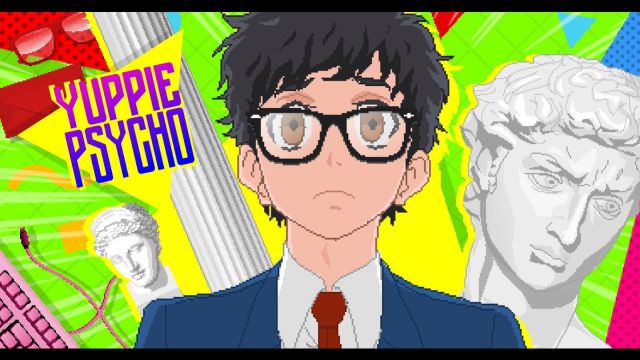
Image of Yuppie Psycho, with a frightened Pasternack.
However, Baroque Decay never intended to elaborate political satire, as stated in Legion of Players: “The truth is that in all the interviews they have made us have highlighted this as something important and they tell us that there are many readings and political criticism . We’ve just thrown a bunch of sci-fi, dystopian, and other references and tropes into a pot. The mixture of all this obviously has some politics because if you put a megacorporation in place, you are not going to make it good; it would be strange and you have to pull by the codes that people recognize. It has turned out to be so ”.
Although criticism is collateral, Baroque Decay supports his work on the cultural convention that a large corporation is perfidious by definition. The survival of the protagonist Pasternack is not only the monsters and the Witch that he must hunt down, but an institution that sees him as a pawn to squeeze for the good of the company itself.
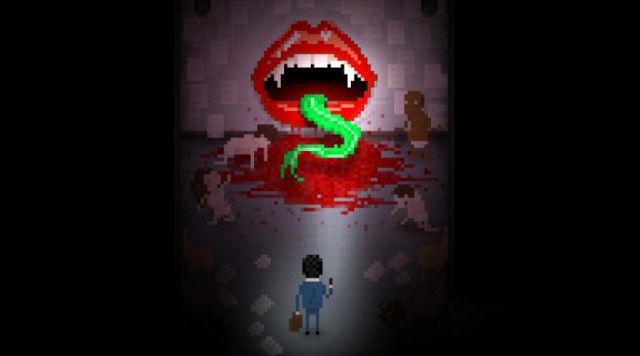
Sintracorp Human Resources
The Outer Worlds, space colonialism in a satirical key
The dystopia of The Outer Worlds presents a future in which the human species has expanded its dominance to other planets. The space colonies, far from being a reboot of society in favor of the common welfare, has led to a corporatist race: companies are the new government, each with its own objectives. Throughout the game we find a cynical sense of humor that eviscerates the consequences of savage capitalism, and it is that Obsidian’s intention was to elaborate a terrifying dystopia in its premise, but fun at the controls. In an interview for Games Industry, Brian Heins, one of the game’s designers, says: “Obviously, [The Outer Worlds] it has a certain level of absurdity for the absolute control of people’s lives at the hands of corporations, an extreme that we do not reach in reality. But we still have echoes in our daily lives about the scope of companies. Who else who has had a lousy experience with the customer service of a company, with which we can understand to what level the bureaucracy invades the mildest aspects of our lives. It was more about how we can take a serious issue in our world and give it a humorous twist ”.
In the dark comedy of The Outer Worlds we find a lifestyle that caricatures capitalism and, at the same time, bears a chilling resemblance to reality: 16-hour shifts in dangerous conditions for health and with ridiculous wages; the eternal debt of citizens who have access to elitist healthcare, police abuse, food transformed into the consumption of processed products that deny nature. Behind the laughter activated with each gag, there is a latent reflection: are we so far from such a future?
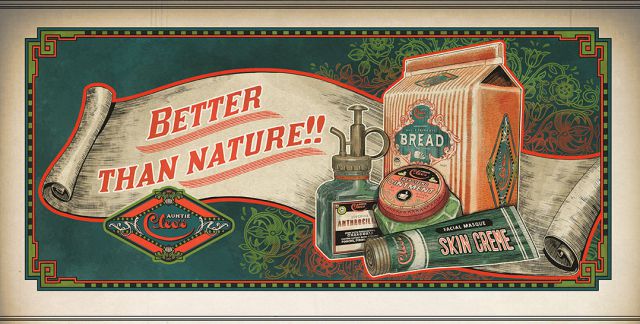
Tita Cleo Product Ads, “Better Than Natural”.
JoJa’s Monopoly
Designer Eric Barone was pursuing a dream that had nothing to do with the job prospect of the average citizen. He didn’t see himself locked in a cubicle following the instructions of a third party. His vocation was to design an artistic project, which he would develop himself to the last pixel: Stardew Valley.
The protagonist is a disillusioned worker from JoJa, an exploitative and dehumanized corporation. After inheriting his grandfather’s farm, our hero takes a radical turn in his life and builds his own livelihood in the rural world. However, JoJa’s tentacles are extensive: the company settles in the bucolic town, and poses a danger to farmers and artisans. Ángel Adames compares JoJa with Wal-Mart in an essay: “The game presents a situation that happens too many times in real life: a mega-corporation moves a town and brings local businesses to ruin by making them compete. This leaves the megacorporation with the monopoly of services in the town and with total control of the local economy. Of course, and unlike in real life, the game offers the player the choice and ability to drive the megacorporation out of town and help restore the local economy. “
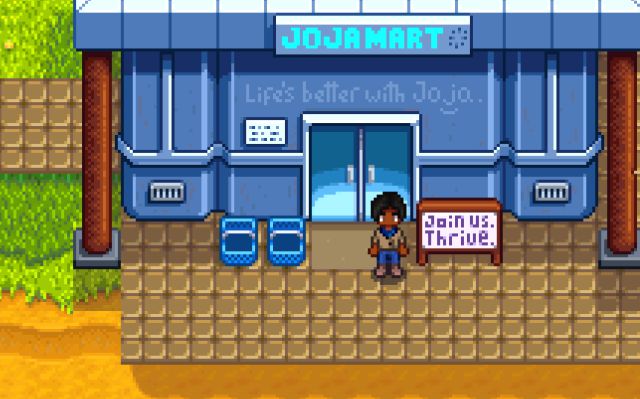
JoJa’s Stardew Valley Branch
Many are the evil corporations that we face in video games. Signatures without a face, or with one very visible and hated. Of course, they are not all that are, but they are all that are. And all of them provide us with an interesting reflection on a world dominated by brands.

